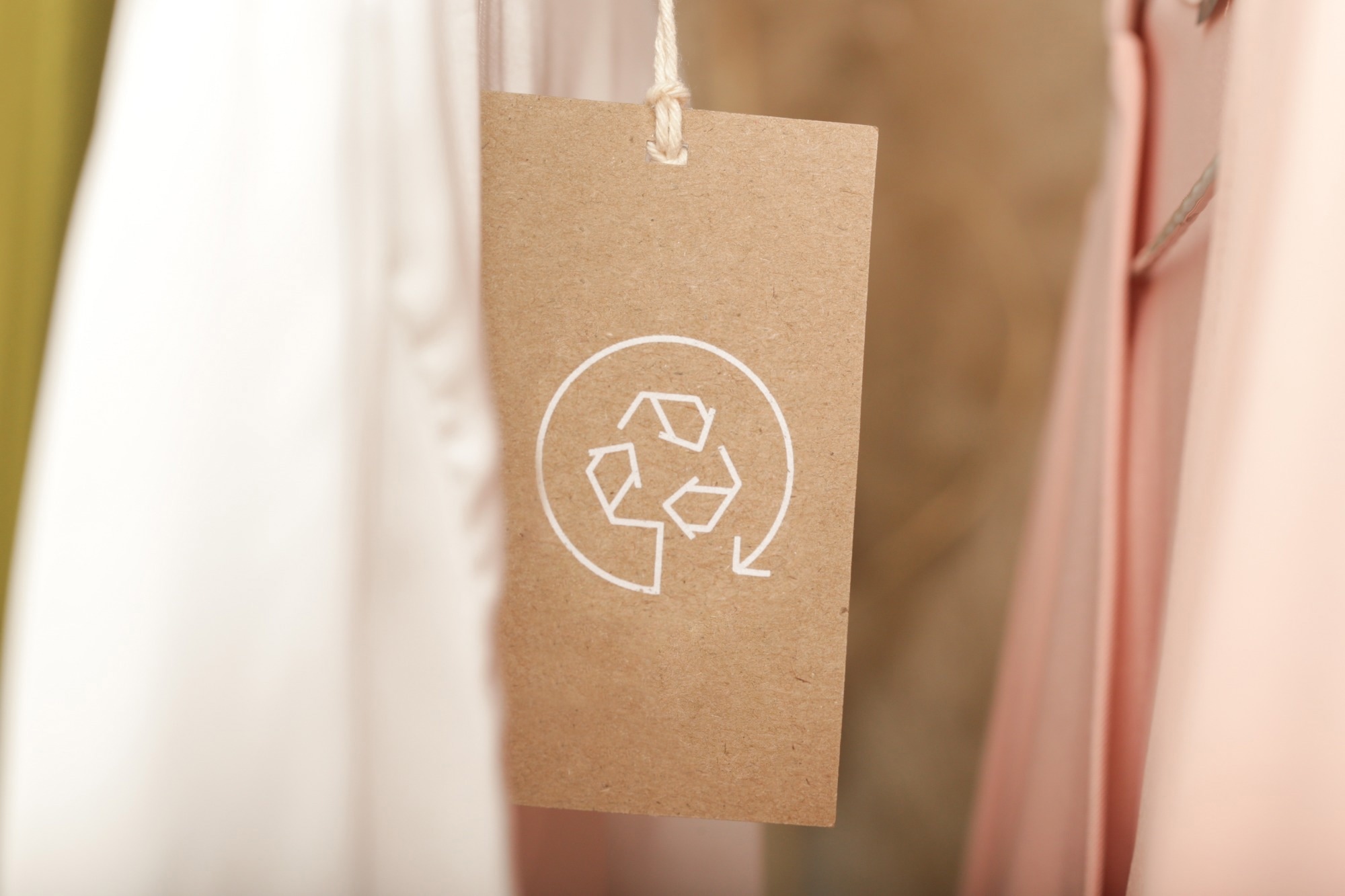A new study published in Scientific Reports explores the use of bio-organic phase change materials (PCMs) to improve the thermal comfort of cotton fabrics.
Researchers developed PCM composites using gelatin modified with fatty acids and incorporated either coconut oil or octadecanol. These composites were applied to cotton fabrics to enhance their ability to regulate temperature.

Image Credit: triocean/Shutterstock.com
Background
PCMs are used in textiles to create thermoregulated fabrics by storing and releasing latent heat during phase transitions. However, because PCMs can melt and leak, they require a stable host material to contain them and maintain functionality.
To address this, various host materials have been developed, including natural polymers like gelatin. Gelatin is particularly suitable due to its high molecular weight, biodegradability, and non-toxicity.
Coconut oil, which also has a high latent heat capacity, has seen limited use in textiles despite its potential. This study explored its viability as a natural, low-cost, and sustainable PCM for textile applications.
Methods
PCM composites were prepared by mixing gelatin-fatty acid esters with either coconut oil or octadecanol at varying molar ratios (10 %, 20 %, and 30 %). The mixtures were heated at 90 °C for two hours. Fabric treatment solutions were then formulated by dispersing these composites in water, with concentrations of 30, 50, and 100 g/L, using a surfactant to aid dispersion.
Cotton fabrics were treated with the PCM solutions using the pad-dry-cure method. This involved padding the fabric, drying it at 80 °C for 15 minutes, and then curing it in an air oven at 100 °C for five minutes. Two dyeing approaches were tested: one where the fabric was treated before dyeing with a reactive dye (treated-then-dyed), and another where dyeing was done before PCM treatment (dyed-then-treated).
Both treated and untreated fabric samples were analyzed using Fourier-transform infrared spectroscopy (FTIR), scanning electron microscopy (SEM), and differential scanning calorimetry (DSC) over a temperature range of 0 to 70 °C. The thermal performance of PCM-treated fabrics was assessed using the duration index, while insulation was evaluated based on resistance to dry heat transfer.
Color properties were measured using a Datacolor reflectance spectrophotometer. The dyed fabrics were also tested for washing fastness, tensile strength, and elongation at break.
Results and Discussion
Cotton fabrics treated with PCM composites (made from gelatin, stearic acid, and either octadecanol or coconut oil) showed improved thermal regulation compared to untreated fabric. These treatments enhanced the fabric’s thermal insulation and reduced temperature fluctuations. The gelatin/stearic acid/coconut oil combination provided higher latent heat storage than the octadecanol-based composite and the uncoated fabric.
Microscopy revealed that both PCM composites formed a uniform thin film on the fiber surface, which helped improve heat retention and thermal performance. Treated fabrics were also reported to feel more comfortable and showed stronger color properties than untreated samples.
When comparing dyeing methods, fabrics dyed first and then treated (dyed-then-treated) performed better in terms of thermal conductivity and heat storage than those treated before dyeing (treated-then-dyed). Thermal conductivity tests confirmed that fabrics treated with either octadecanol or coconut oil had significantly higher conductivity than untreated samples, with the treated-then-dyed fabrics showing the lowest conductivity values.
Durability testing showed slight performance loss after five washing cycles, but properties improved again by the tenth cycle. The treated fabric maintained its heat storage ability, and changes in color strength remained within acceptable limits.
Download your PDF copy now!
Conclusion
The study shows that natural PCMs like coconut oil can effectively enhance the thermal comfort of cotton fabrics. When combined with gelatin and stearic acid, coconut oil outperformed octadecanol in thermal regulation, offering a sustainable and affordable alternative.
Although the PCM layer slightly reduced fabric thickness, it improved insulation by forming a stable, heat-retaining surface. These results suggest natural PCM treatments are a viable option for creating comfortable, thermally adaptive textiles.
Journal Reference
Zayed, M., Ghazal, H., Othman, HA., El-Aziz, EA., Hassabo, AG. (2025). Functionalization of cotton fabric using bio-organic heat storage materials for human protection and thermal comfortability. Scientific Reports. DOI: 10.1038/s41598-025-01328-0, https://www.nature.com/articles/s41598-025-01328-0
Disclaimer: The views expressed here are those of the author expressed in their private capacity and do not necessarily represent the views of AZoM.com Limited T/A AZoNetwork the owner and operator of this website. This disclaimer forms part of the Terms and conditions of use of this website.